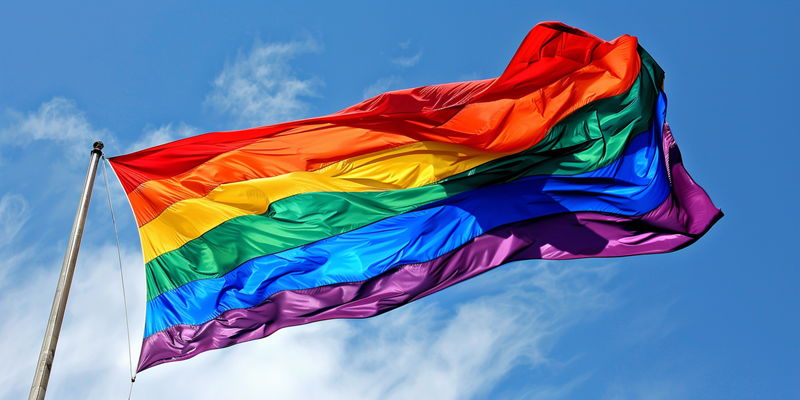A significant survey commissioned by the recruitment firm Randstad has made visible the lingering prejudices faced by the LGBTQ+ community within the workplace. Surveying over 2,000 LGBTQ+ employees, the findings bring to light the stark reality that two in five people have experienced discrimination due to their gender identity or sexual orientation. The importance of these findings cannot be understated as they reveal not only the personal struggles of individuals but also offer a lucid reflection of today’s workplace climates. By illuminating the pervasive nature of this issue, we can begin to understand its effects on the morale, productivity, and the very careers of LGBTQ+ workers. Here, we delve into the survey’s revelations and consider how they might reshape the ways in which workplaces address inclusivity and diversity.
Prevalence of Discrimination in the Workplace
The distressing truth brought forth by Randstad’s survey is undeniable—41% of LGBTQ+ workers grapple with discrimination at their jobs. This concerning figure underscores a significant sociocultural challenge within our professional environments. Discrimination on the grounds of identity stifles not only the individual’s expression but also the collective ethos of a diverse workforce. The experiences shared by these employees depict a workplace that, despite strides in social progress, still clings to archaic biases and exclusionary practices.
Neglecting to acknowledge these voices can perpetuate a climate of indifference, thereby alienating a section of the workforce that already stands vulnerable. Creating change, therefore, necessitates more than just awareness; it demands a committed overhaul of workplace policies and cultures, designed to dismantle the barriers faced by LGBTQ+ individuals. Solidarity and proactive measures by employers and colleagues alike can pave the way for a more inclusive and equitable working environment for all.
Impact on Career and Motivation
The repercussions of discrimination extend beyond momentary incidents and can have long-lasting impacts on career progression and personal job satisfaction. The survey found that 36% of LGBTQ+ employees feel less motivated and productive when they are unable to be their authentic selves in the workplace. This not only hinders personal growth but also impacts the overall performance and success of companies.
When workers are forced to spend their energy navigating a web of prejudice, the road to professional advancement becomes distressingly steep. Such environments inhibit the potential of talented individuals and ultimately result in valuable talent being overshadowed by the specter of discrimination. Employers must recognize that their greatest asset is a workforce unencumbered by discrimination, where every individual is encouraged to thrive.
The Role of Remote Work
Amidst widespread inclusivity challenges, remote work has emerged as a respite for many LGBTQ+ workers, allowing them an escape from uncomfortable, and sometimes openly hostile, traditional office settings. Remote work not only provides these individuals control over their work environment but also offers a reprieve from the stressors associated with daily discrimination and the pressure to conform to normative expectations.
This shift also signals a broader issue within various corporate cultures that inherently lack inclusivity. While some may view remote work as a temporary solution, it is essential to examine why employees are driven to such measures for comfort and security. This trend should act as a clarion call for organizations to introspect and restructure their workplace dynamics to accommodate and celebrate diversity in all its forms.
The Employer’s Responsibility
The onus to foster a climate of inclusivity rests heavily on the shoulders of employers. However, the survey indicates a gap between the expectations of employees and the actions of their employers. The majority of LGBTQ+ workers believe that companies can and should do more to demonstrate a genuine commitment to diversity and inclusivity.
Recognition of the problem is the first step, but it takes a series of conscious, intentional actions to create an environment where all employees feel valued and accepted. Forward-thinking companies are starting to understand that true inclusivity strengthens the organizational fabric and leads to a more dynamic, innovative, and committed workforce. There is an imperative need for employers to move beyond mere compliance with non-discrimination laws and make real, substantive efforts to ensure their LGBTQ+ employees are supported and affirmed.
Tokenism Versus Authentic Allyship
A significant portion of the survey’s respondents express skepticism towards their employers’ efforts, particularly younger employees, who are more likely to discern the difference between performative gestures and authentic support. Tokenistic efforts during events like Pride Month are perceived as insufficient and sometimes insincere if not matched by year-round policies and practices that defend LGBTQ+ rights.
Authentic allyship is characterized by continuous and unconditional support, which is integrated into the very DNA of the company. It thrives on listening actively to LGBTQ+ employees, amplifying their voices, and implementing their feedback. This approach leads to policies that are shaped not just for the LGBTQ+ community but with their active input, ensuring that initiatives are reflective of real needs and not just superficial band-aids.
Recommendations for a More Inclusive Workplace
Drawing insights from the depth of responses, Randstad’s survey presents several actionable recommendations. Central to these is the creation of employee-led support networks, a culture rooted in empathy, and a call for genuine allyship that extends beyond ceremonial observances. Employers are encouraged to establish clear HR policies against discrimination, conduct regular diversity training, and celebrate LGBTQ+ identities through meaningful engagement.
An inclusive workplace is not achieved overnight but through persistent and comprehensive efforts. These recommendations are foundational tools that can aid in shifting corporate dynamics towards more respectful and understanding interactions among colleagues. When a company fully embraces diversity in its workforce, it not only stands on the right side of history but unlocks a wealth of innovation and creativity powered by the richness of its people’s experiences.
In conclusion, the survey by Randstad sends a powerful message to employers everywhere: it is not enough to avoid discrimination; workplaces must be active champions of inclusivity. Companies that rise to this challenge will not only foster a healthier, more engaged workforce but also contribute to a broader societal shift towards equality and respect for all.

